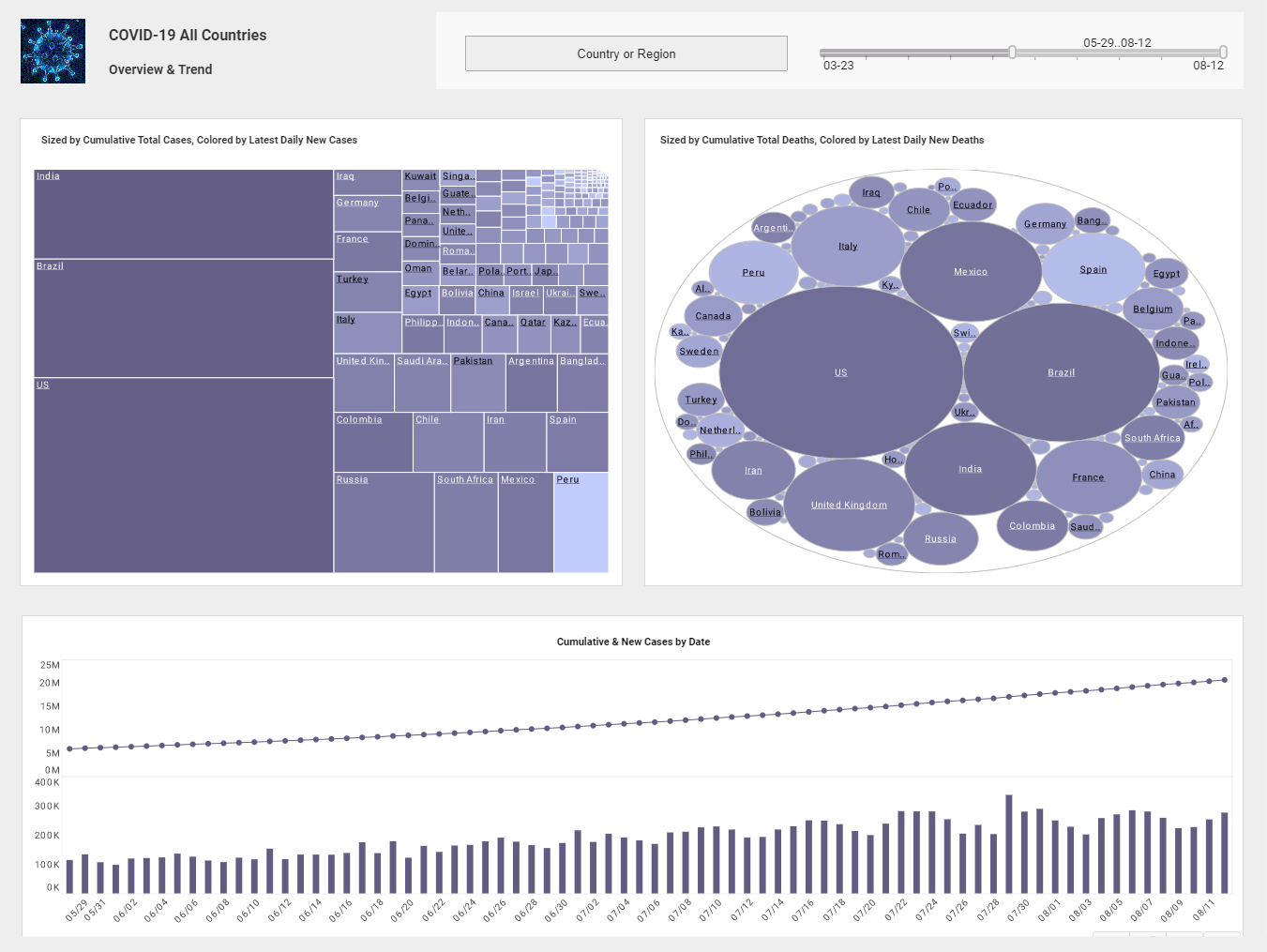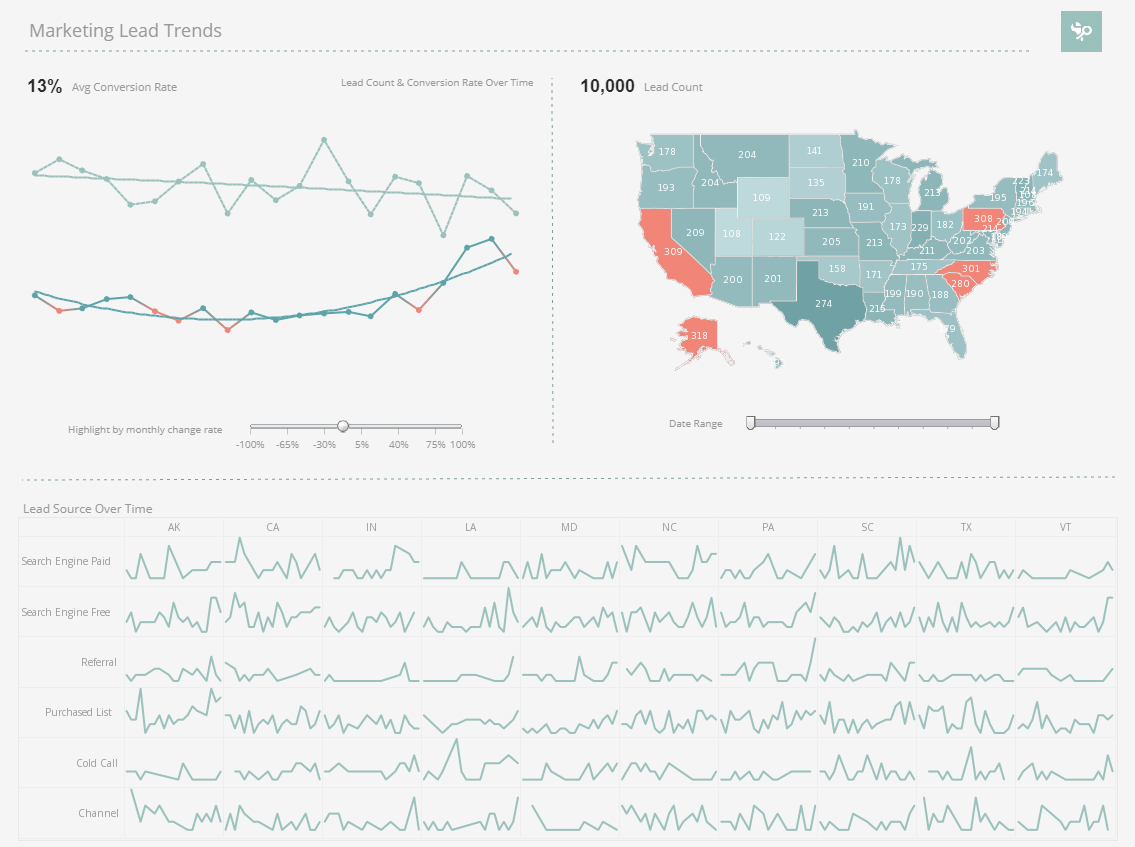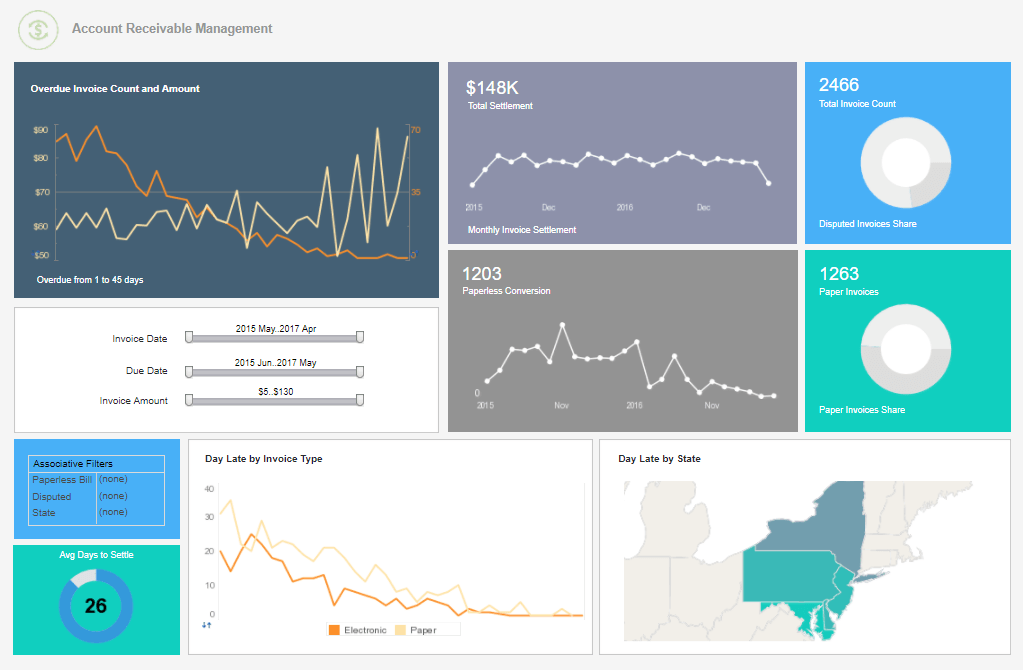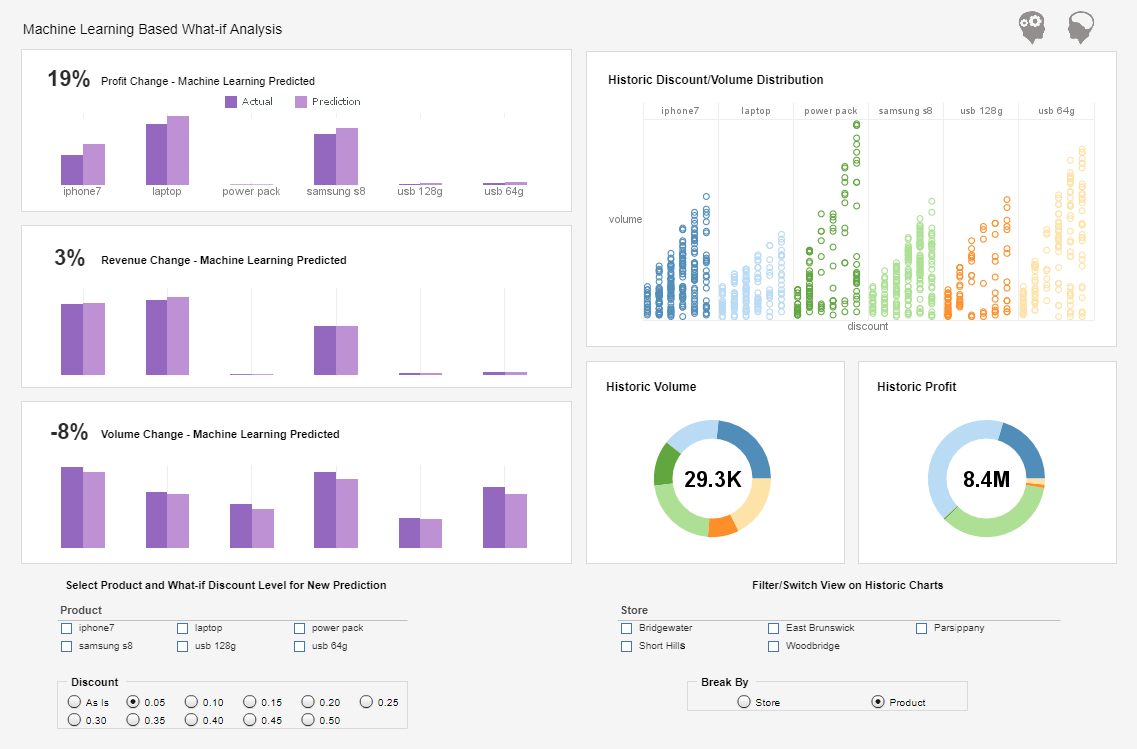Big Data Companies: InetSoft Technology
Deciding among alternatives for your Big Data infrastructure?
As a solution that adheres to the open-source standards, InetSoft's StyleBI will be compatible with whatever company that you choose for storing massive data sets. Style Intelligence enables visual dashboarding and the performance of sophisticated analytics on Big Data, all performed at high speeds, thanks to InetSoft's Data Grid Cache.
In addition to the tools within a third-party database platform, InetSoft's compatible and versatile BI solution will cater to your users with powerful data mashup, detailed reports, and interactive dashboards, all within an intuitively easy interface. Style Intelligence is an easy, agile, and robust BI software application that will complement any data source, large or small.
We have evaluated and compiled a list of distinctive companies to consider for managing your Big Data needs. All of these can be integrated and mashed up with more traditional sources, using InetSoft's big data solutions.
| #1 Ranking: Read how InetSoft was rated #1 for user adoption in G2's user survey-based index | Read More |

Amazon - AWS (Amazon Web Services) offers primary tools to help with data computation and sharing; users also have the option to utilize additional tools for Hadoop and NoSQL data stores. Solutions such Amazon Simple Storage Service (S3), Amazon Elastic Block Store (EBS), and Amazon DynamoDB are available for petabytes of data storage. Users can effortlessly store and transfer their Big Data collection to and from the cloud using transfer services such as Import/Export service or AWS Direct Connect. AWS offers primary tools to help with data computation and sharing; users also have the option to have additional tools for Hadoop and NoSQL data stores.
Cloudera - Each on varying licensing terms, Cloudera offers one edition of Cloudera Express and three editions of Cloudera Enterprise (Basic, Flex, and Data Hub). The foundation of these products is CDH, which is an open source Apache-licensed software that enables Hadoop-style architecture. HBase, Impala, Cloudera Search, Apache Spark and Cloudera Manager are all examples of data management components that help organize Big Data to help facilitate solutions.
Google - Google enables interactive Big Data analysis via a cloud platform with BigQuery. With an easy-to-use interface, this web-based architecture allows users to rapidly request SQL-like queries, and promptly access historical and real-time data. Companies with multiple positions and levels will appreciate the accessibility of separate interfaces, so that their users are provided with the data tools that they find necessary. Google provides flexible pricing for BigQuery, requiring payment only for the storage users need and the queries that they run.
MemSQL - Provisioning Big Data, MemSQL's database is structured as a tiered storage, which features an in-memory store and a flash or disk-based column store. The product allows data to be moved from memory to flash to disk, and effortlessly transfers data between storage engines. Users can run SQL queries as sophisticated as JOINS and work with JSON in a relational environment. The database also features ANSI SQL interfaces and uses MySQL client drivers, ODBC, and JDBC. MemSQL offers the option to house the data on premise, host in public, or via a private cloud
MongoDB - As a NOSQL open-source database, MongoDB prides itself as an agile and flexible platform fit for Big Data. The horizontal scaling product, MongoDB Enterprise, is an in-memory computing database. It enables JSON-like documents with versatile schemas to support instantaneous changes. Users are still equipped with the familiar components of traditional databases such as detailed consistency, comprehensive query language, and secondary indexes.


 |
Read the top 10 reasons for selecting InetSoft as your BI partner. |


